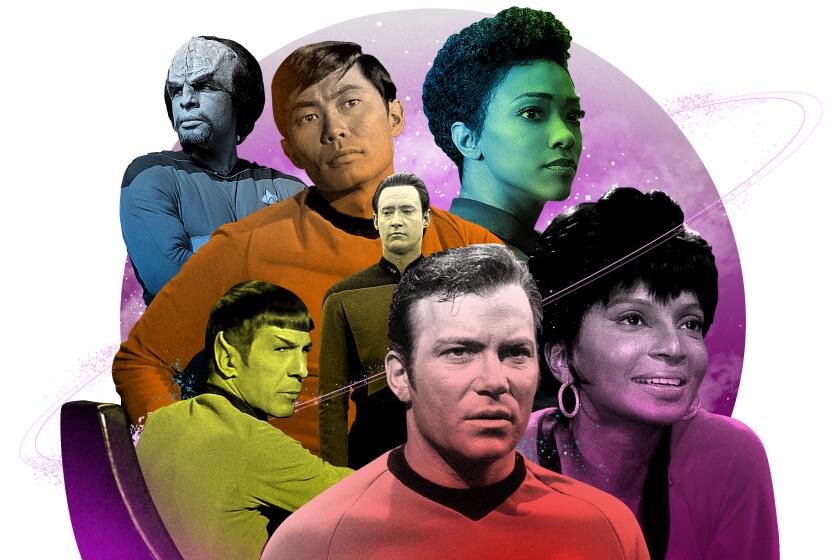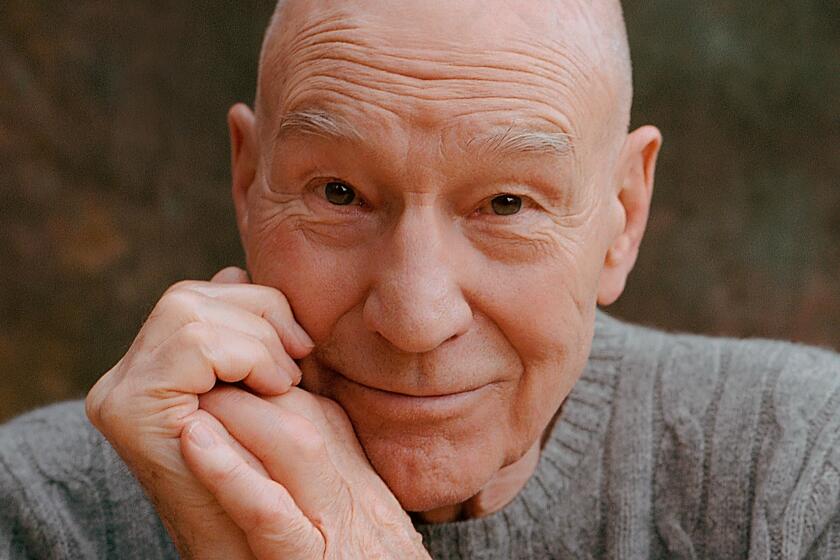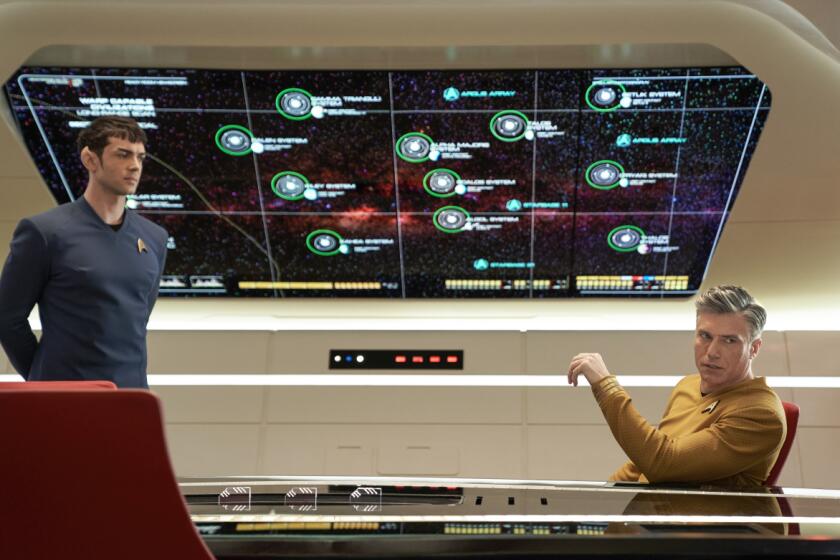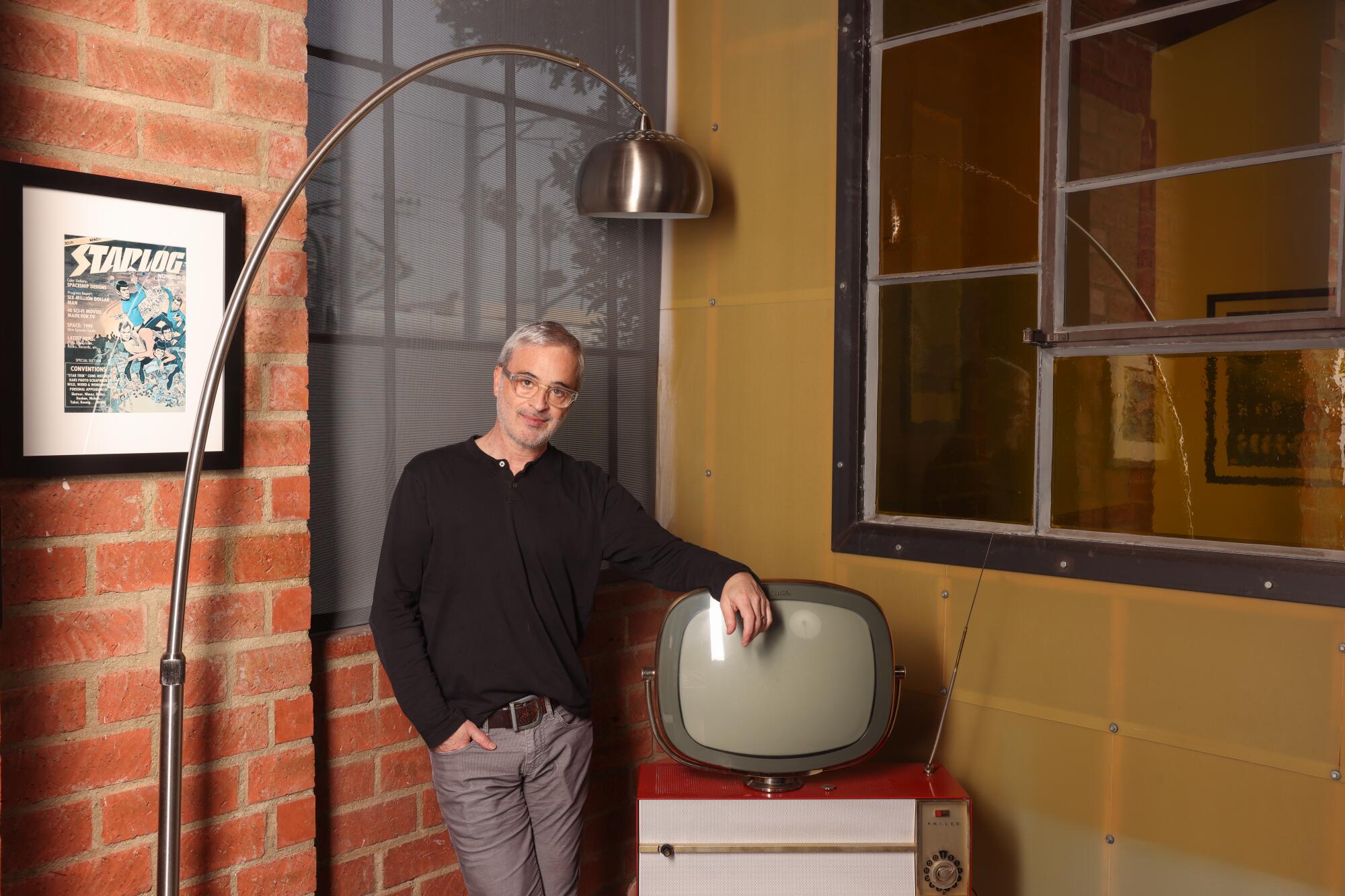
In “Star Trek” terms, and in the real world of “Star Trek” television, Alex Kurtzman, who oversees the 21st century franchise, might be described as the Federation president, from whose offices various series depart on their individual missions. Indeed, to hear him speak of it, the whole enterprise — honestly, no pun intended — seems to run very much on the series’ ethos of individual initiative and group consensus.
The first series to be launched, “Star Trek: Discovery,” has come to an end as of Thursday after five seasons on Paramount+. Others in the fleet include the concluded “Picard,” which brought “The Next Generation” into a new generation; the ongoing “Strange New Worlds,” which precedes the action of what’s now called “The Original Series,” from which it takes its spirit and several characters; “Lower Decks,” a comedy set among Starfleet service workers; and “Prodigy,” in which a collection of teenage aliens go joyriding in a starship. On the horizon are “Starfleet Academy,” with Holly Hunter set to star, and a TV feature, “Section 31,” with Michelle Yeoh back as Philippa Georgiou.
I spoke with Kurtzman, whose “Trek” trek began as a writer on the quantum-canonical reboot movies “Star Trek” (2009) and “Star Trek: Into Darkness” (2013), at Secret Hideout, his appropriately unmarked Santa Monica headquarters. Metro trains glide by his front door unaware. We began the conversation, edited for length and clarity here, with a discussion of his “Trek” universe.
Alex Kurtzman: I liken them to different colors in the rainbow. It makes no sense to me to make one show that’s for everybody; it makes a lot of sense to make a lot of shows individually tailored to a sect of the “Star Trek” audience. It’s a misnomer that there’s a one-size-fits-all Trekkie. And rather than make one show that’s going to please everybody — and will almost certainly please nobody — let’s make an adult drama, an animated comedy, a kids’ comedy, an adventure show and on and on. There’s something quite beautiful about that; it allows each of the stories to bloom in its own unique way.
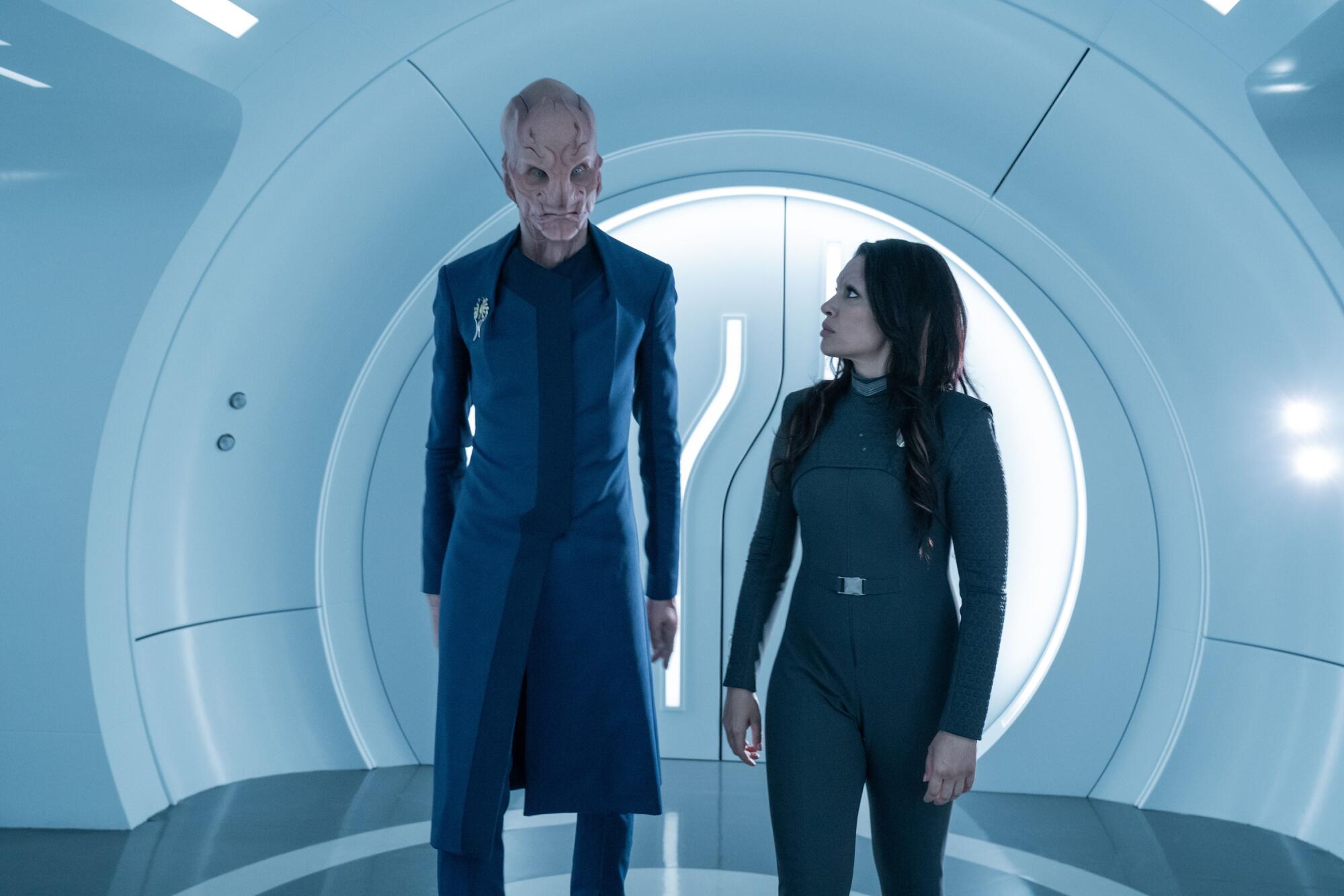
Do you get pushback from the fans?
Absolutely. In some ways that’s the point. One of the things I learned early on is that to be in love with “Star Trek” is to engage in healthy debate. There is no more vocal fan base. Some people tell you that their favorite is “The Original Series,” some say their favorite is “Voyager” and some say their favorite is “Discovery.” Yet they all come together and talk about what makes something singularly “Trek” — [creator] Gene Roddenberry‘s extraordinarily optimistic vision of the future when all that divides us [gets placed] in the rearview mirror and we get to move on and discover things. Like all great science fiction, you get to pick your allegory to the real world and come up with the science fiction equivalent. And everybody who watches understands what we’re talking about — racism or the Middle East or whatever.
What specific objections did you find to “Discovery”?
I think people felt it was too dark. We really listen to our fans in the writers’ room — everybody will have read a different article or review over the weekend, and we talk about what feels relevant and what feels less relevant. And then we engage in a healthy democratic debate about why and begin to apply that; it seeps into the decisions we make. Season 1 of “Discovery” was always intended to be a journey from darkness into light, and ultimately reinforce Roddenberry’s vision. I think people were just stunned by something that felt darker than any “Trek” had before. But doing a dark “Star Trek” really wasn’t our goal. The show is a mirror that holds itself up to the times, and we were in 2017 — we saw the nation fracture hugely right after the election, and it’s only gotten worse since then. We were interpreting that through science fiction. There were people who appreciated that and others for whom it was just not “Star Trek.” And the result, in Season 2, Capt. [Christopher] Pike showed up, Number One showed up, Spock showed up, and we began to bring in what felt to people more like the “Star Trek” they understood.
Full of ideas and emotions, the ever-expanding ‘Star Trek’ canon is still finding new ways to go where no TV show has gone before, 55 years on.
You’re ending the series after five seasons. Was that always a plan?
You know, we were surprised we didn’t continue, and yet it feels now that it was right. One of the things that happened very quickly as streaming took off was that it radically changed watch patterns for viewers. Shows that used to go 10, 12 seasons, people would tap out after two — like, “I got what I want” — so for any show to go five seasons, it’s a miracle. In ways I don’t think we could have predicted, the season from the beginning feels like it’s the last; it just has a sense of finality. The studio was wonderful in that they recognized we needed to put a button on it, we needed a period on the end of the sentence, and so they allowed us to go back, which we did right before the strike, and [film] the coda that wraps up the series.
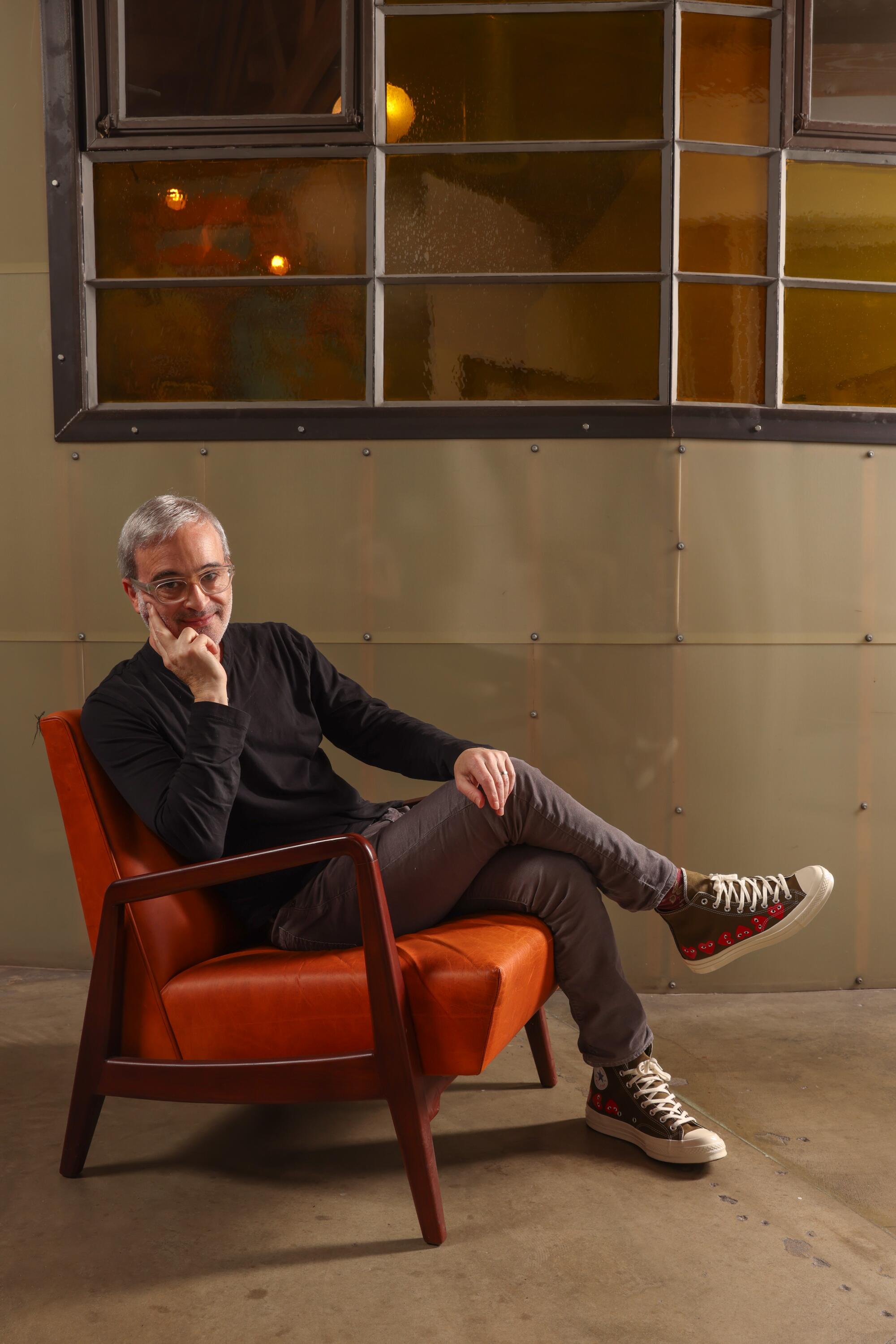
“Discovery” is a riot of love stories, among both heroes and villains.
There’s certainly a history of that in “Star Trek.” Whether or not characters were engaged in direct relationships, there was always a subtext of the love between them. I believe that’s why we love the bridge crew, because it’s really a love story, everyone’s in a love story, and they all care for each other and fight like family members. But ultimately they’re there to help each other and explore the universe together. If there’s some weird problem, and the answer’s not immediately apparent, each of them brings a different skill set and therefore a different perspective; they clash in their debate on how to proceed and then find some miraculous solution that none of them would have thought of at the outset.
One of the beautiful things about the shows is that you get to spend a long time with them, as opposed to a two-hour movie where you have to get in and out quickly and then wait a couple of years before the next one comes along. To be able to be on their weekly adventures, it affords the storytelling level of depth and complexity a two-hour movie just can’t achieve in that way.
The actor discusses his ‘Star Trek’ character at the beginning and end, from his first impressions of Gene Roddenberry to saying goodbye to ‘Picard.’
It’s astonishing how much matter you got into these things. Some storylines that only lasted an episode I remembered as seasonal arcs.
The sheer tonnage of story and character we were able to pack into “Discovery” every episode was kind of incredible. The thing to keep in mind is that “Discovery” was made as streaming was exploding, so what I think you’re also seeing there is a lot of writers who were trained in the network world with an A, B and C story applying it suddenly to a very different kind of storytelling in a much more cinematic medium. And when you have that kind of scope it starts to become really, really big. Sometimes that works really, really well and sometimes it was too much. And we were figuring it out; it was a bunch of people with flashlights in the dark, looking for how to interpret “Star Trek” now, since it had been 12 years since it had been on a television screen.
Are you able to course-correct within a season?
Sure. You get people you really trust in the room. Aaron Baiers, who runs Secret Hideout, is one of my most important early-warning systems; he isn’t necessarily in the room when we’re breaking stories, but he’s the first person who’ll read an outline and he’s the first person who’ll read a script. What I value so much about his perspective is that he’s coming in cold, he’s just like, “I’m the viewer, and I understand this or I don’t understand it, I feel this or I don’t feel it.” The studio executives are very similar. They love “Star Trek,” they’re all die-hard fans and have very strong feelings about what is appropriate. It then goes through a series of artists in every facet, from props to visual effects to production design, and they’re bringing their interpretations and opinions to the story.
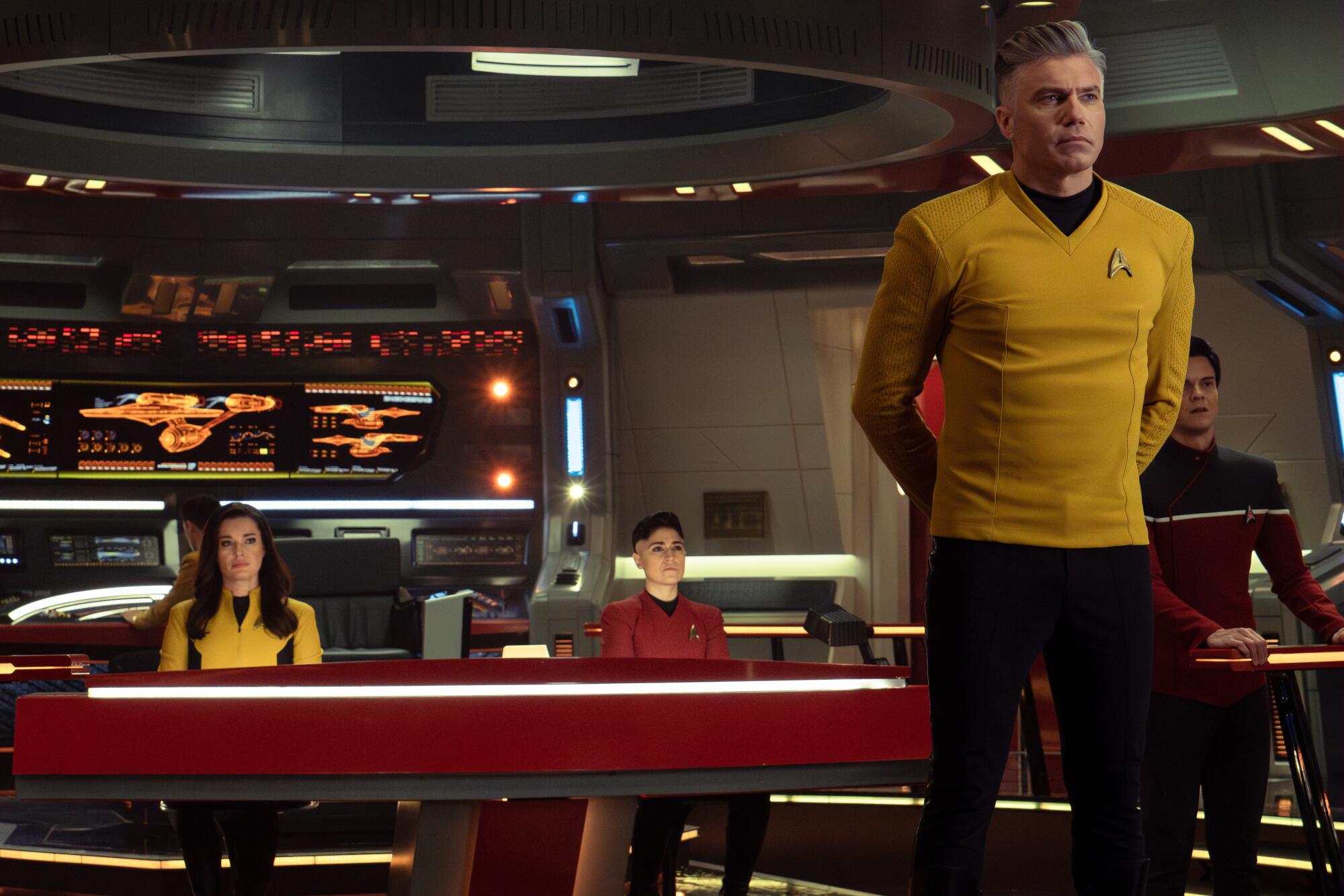
Did “Strange New Worlds” come out of the fact that everybody loved seeing Christopher Pike in “Discovery?”
I really have to credit Akiva Goldsman with this. He knew that I was going to bring Pike into the premiere of the second season of “Discovery,” and said, “You know, there’s an incredible show about Capt. Pike and the Enterprise before Kirk takes over; there’s seven years of great storytelling there” — or five years, depending on when you come into the storyline. I said, “We have to cast a successful Pike first, so let’s see if that works. Let’s figure out who’s Number One, and who Spock is,” which are wildly tall orders. I hadn’t seen Anson Mount in other things before [he was cast as Pike], and when he sent in his taped audition it was that wonderful moment where you go, “That’s exactly the person we’re looking for.” Everybody loves Pike because he’s the kind of leader you want, definitive and clear but open to everyone’s perspective and humanistic in his response. And then we had the incredibly tall order of having Ethan [Peck] step into Leonard [Nimoy’s] and [Zachary Quinto’s] shoes.
He’s great.
He’s amazing, just a delight of a human being. And Rebecca Romijn‘s energy, what she brings to Number One is such a contemporary take on a character that was kind of a cipher in “The Original Series.” But she brings a kind of joy, a comedy, a bearing, a gravitas to the character that feels very modern. Thank God the fans responded the way they did and sent that petition [calling for a “Legacy” series], because everybody at CBS got the message very quickly. Jenny Lumet and Akiva and I wrote a pilot, and we were off to the races. Typically it takes fans a minute to adjust to what you’re doing, especially with beloved legacy characters, but the response to “Strange New World” from a critical perspective and fan perspective and just a viewership perspective was so immediate, it really did help us understand what was satisfying fans.
‘Strange New Worlds,’ premiering Thursday on Paramount+, spins the franchise into a series with roots in its original rejected pilot.
What can you tell me about “Starfleet Academy?” Is it going to be Earth-based or space-based?
I’m going to say, without giving anything away, both. Right now we’re in the middle of answering the question what does San Francisco, where the academy is, look like in the 32nd century. Our primary set is the biggest we’ve ever built.
So you’re setting this —
In the “Discovery” era. There’s a specific reason for that. As the father of a 17-year-old boy, I see what my son is feeling as he looks at the world and to his future. I see the uncertainty; I see all the things we took for granted as given are not certainties for him. I see him recognizing he’s inheriting an enormous mess to clean up and it’s going to be on his generation to figure out how to do that, and that’s a lot to ask of a kid. My thinking was, if we set “Starfleet Academy” in the halcyon days of the Federation where everything was fine, it’s not going to speak to what kids are going through right now.
It’ll be a nice fantasy, but it’s not really going to be authentic. What’ll be authentic is to set it in the timeline where this is the first class back after over 100 years, and they are coming into a world that is only beginning to recover from a cataclysm — which was the Burn, as established on “Star Trek: Discovery,” where the Federation was greatly diminished. So they’re the first who’ll inherit, who’ll re-inherit, the task of exploration as a primary goal, because there just wasn’t room for that during the Burn — everybody was playing defense. It’s an incredibly optimistic show, an incredibly fun show; it’s a very funny show, and it’s a very emotional show. I think these kids, in different ways, are going to represent what a lot of kids are feeling now.
And I’m very, very, very excited that Holly Hunter is the lead of the show. Honestly, when we were working on the scripts, we wrote it for Holly thinking she’d never do it. And we sent them to her, and to our absolute delight and shock she loved them and signed on right away.
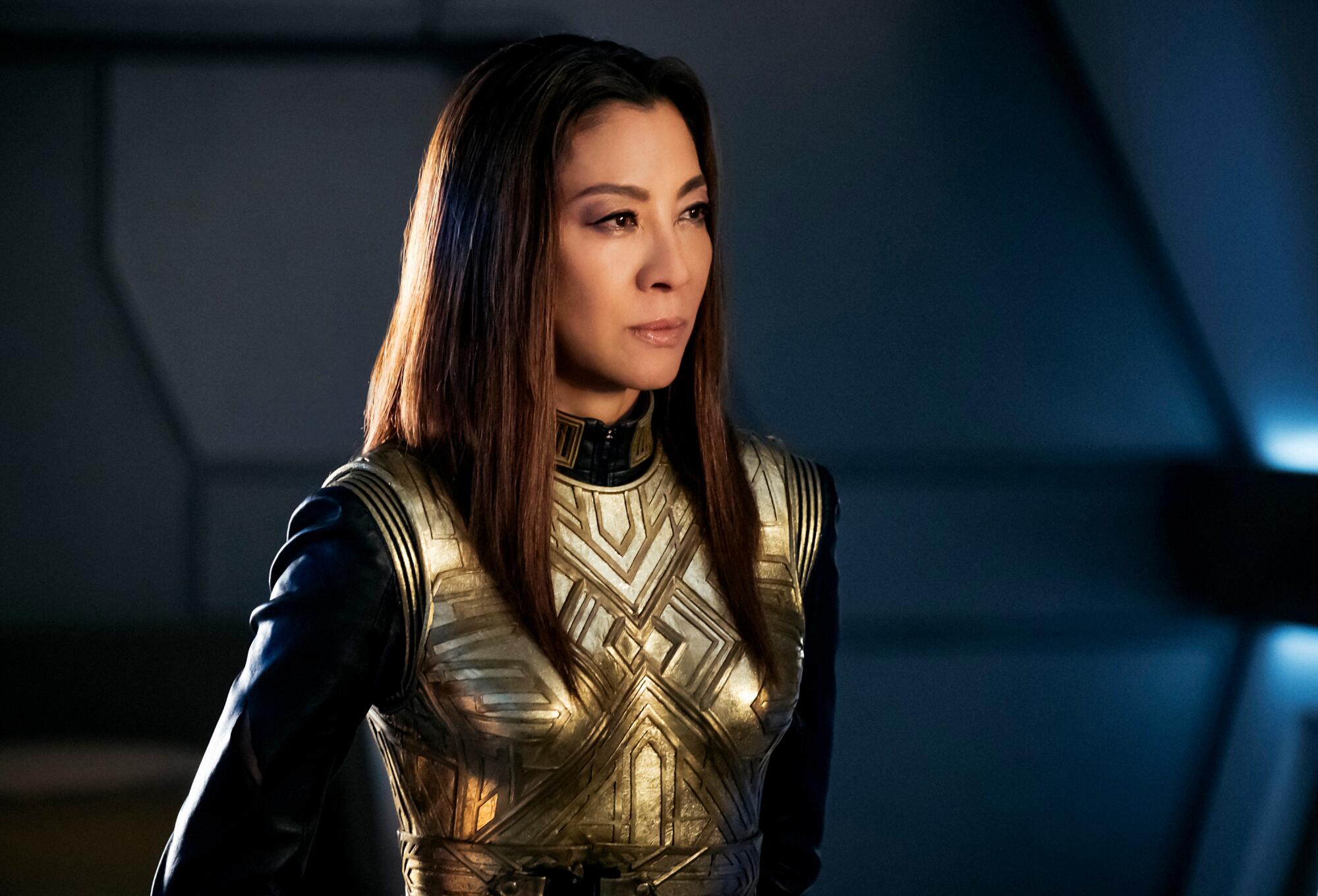
And then you’ve got the “Section 31” movie.
“Section 31” is Michelle Yeoh’s return as Georgiou. A very, very different feeling for “Star Trek.” I will always be so grateful to her, because on the heels of her nomination and then her Oscar win, she just doubled down on coming back to “Star Trek.” She could have easily walked away from it; she had a lot of other opportunities. But she remained steadfast and totally committed. We just wrapped that up and are starting to edit now.
Are you looking past “Starfleet” and “Section 31” to future projects?
There’s always notions and there are a couple of surprises coming up, but I really try to live in the shows that are in front of me in the moment because they’re so all-consuming. I’m directing the first two episodes of “Starfleet Academy,” so right now my brain is just wholly inside that world. But you can tell “Star Trek” stories forever; there’s always more. There’s something in the DNA of its construction that allows you to keep opening different doors. Some of that is science fiction, some of it has to do with the combination of science fiction and the organic embracing of all these other genres that lets you explore new territories. I don’t think it’s ever going to end. I think it’s going to go on for a long, long time. The real question for “Star Trek” is how do you keep innovating, how do you deliver both what people expect and something totally fresh at the same time. Because I think that is actually what people want from “Star Trek.” They want what’s familiar delivered in a way that doesn’t feel familiar.
With all our showrunners — Terry Matalas on “Picard,” the Hagemans on “Prodigy,” Mike McMahan on “Lower Decks,” Michelle Paradise, who has been singlehandedly running “Discovery” for the last two years, and then Akiva and Henry Alonso Myers on “Strange New Worlds” — my feeling is that the best way to protect and preserve “Star Trek” is not to impose my own vision on it but [find people] who meet the criteria of loving “Star Trek,” wanting to do new things with it, understanding how incredibly hard it is to do. And then I’m going to let you do your job. I’ll come in and tell you what I think every once in a while, and I’ll help get the boat off the dock, but once I hand the show over to a creative it has to be their show. And that means you’re going to get a different take every time, and as long as those takes all feel like they can marry into the same rainbow, to get back to the metaphor, that’s the way to keep “Star Trek” fresh.
I take great comfort because “Star Trek” really only belongs to Gene Roddenberry and the fans. We don’t own it. We carry it, we try to evolve it and then we hand it off to the next people. And hopefully they will love it as much as we do.
More to Read
The complete guide to home viewing
Get Screen Gab for everything about the TV shows and streaming movies everyone’s talking about.
You may occasionally receive promotional content from the Los Angeles Times.
